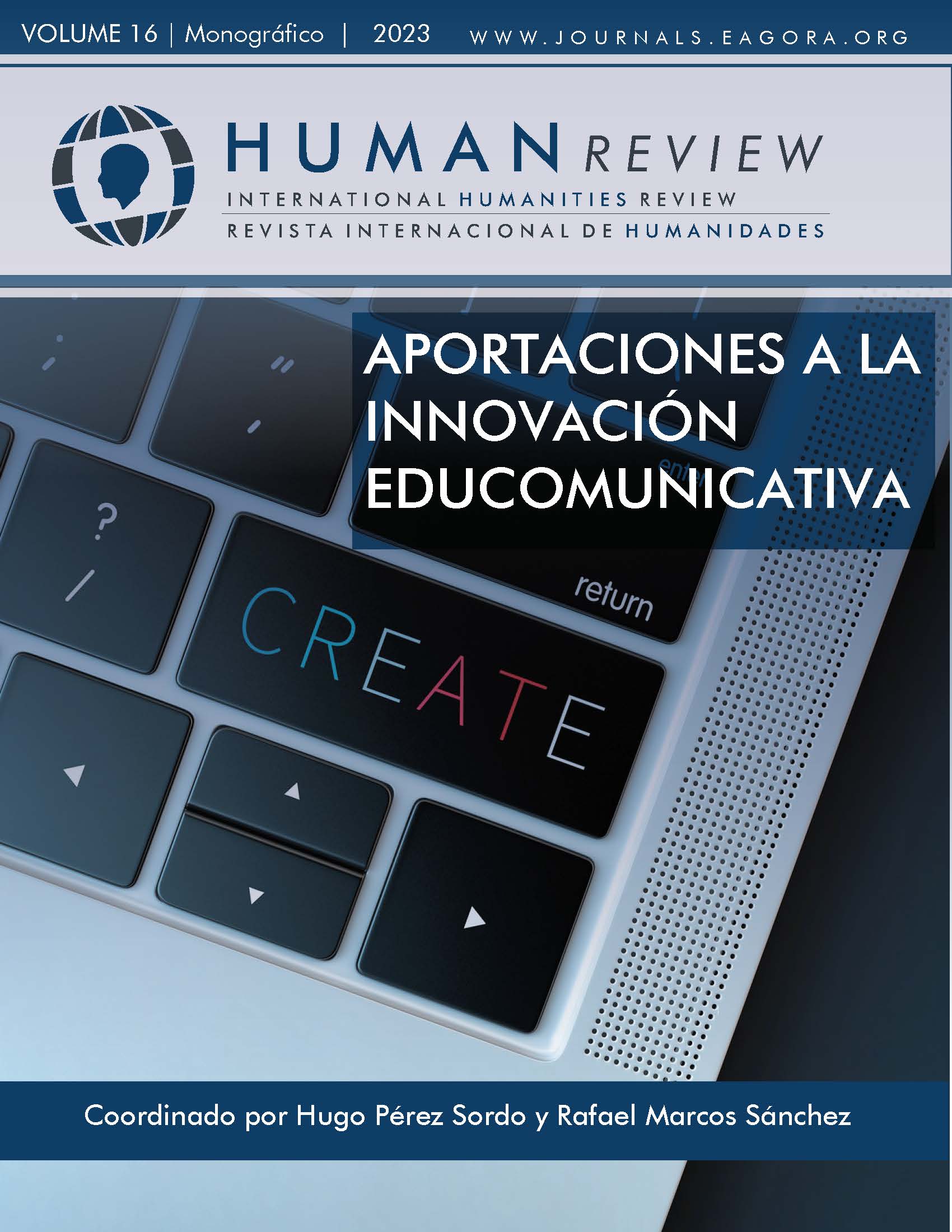Training in innovation and entrepreneurship: A Design Thinking teaching experience
Keywords:
Design thinking, Teaching, Creativity, Innovation, Transversal competences, Entrepreneurship, Active learningAbstract
A Design Thinking (DT) teaching experience developed in the context of compulsory remote education is reported. The training process was managed using ICT tools. We worked with 23 university students, the objective was to generate innovative and useful proposals in their context, proposals focused on the needs of potential users.
To assess the experience, a questionnaire was applied to the students. The results show innovative proposals that helped them develop technological skills and transversal competences.
It is concluded that students favorably perceive the didactic strategies implemented, which opened new alternatives for their personal and professional development.
References
Almerich, G., Díaz, I., Cebrián, S. y Suárez, J. (2018). Estructura dimensional de las competencias del siglo XXI en alumnado universitario de educación. Revista Electrónica de Investigación y Evaluación Educativa, 24(1), 1-21. https://doi.org/10.7203/relieve.24.1.12548.
Barron, B. (2000). Achieving Coordination in Collaborative Problem-Solving Groups. The Journal of the Learning Sciences, 9, 4; 403-436.
Bedregal-Alpaca, N. (2019). Tutoría virtual y blended- learning en el posgrado: Orientaciones y resultados de una experiencia”, Conference: 17th LACCEI International Multi-Conference for Engineering, Education, and Technology, 2019. DOI: 10.18687/LACCEI2019.1.1.220
Bedregal-Alpaca, N., Cornejo-Aparicio, V., Padron-Alvarez, A., Castañeda-Huaman, E. (2020). Design of cooperative activities in teaching- learning university subjects: Elaboration of a proposal. International Journal of Advanced Computer Science and Applications, 2020, 11(4), 0445. DOI: 10.14569/IJACSA.2020.0110445.
Benson, J. y Dresdow, S. (2014). Design thinking: a fresh approach for transformative assessment practice. Journal of Management Education, 38(3), 436-461. https://doi.org/10.1177/1052562913507571
Brown, T. (2010). IDEO «design thinking» Approach. (www.ideo.com/thinking/approach) (06-06-2022).
Carleton, T. & Leifer, L. (2009). Stanford’s ME310 Course as an Evolution of Engineering Design. Proceedings of the 19th CIRP Design Conference-Competitive Design, Cranfield University.
Cohen, E. (1994). Restructuring the Classroom: Conditions for Productive Small Groups. Review of Educational Research, 6, 1; 1-35.
Cornejo-Aparicio, V.; Flores-Silva, S.; Bedregal-Alpaca, N. & Tupacyupanqui-Jaén, D. (2019). Capstone courses under the PBL methodology approach, for engineering. 2019 IEEE World Conference on Engineering Education (EDUNINE). DOI: 10.1109/EDUNINE.2019.8875803
Dym, C., Agogino, A., Eris, O., Frey, D. y Leifer, L. (2005). Engineering design thinking, teaching, and learning. Journal of Engineering Education, 94(1), 103-120. https://doi.org/10.1002/j.2168-9830.2005.tb00832.x
EPIS-UNSA: Plan de estudios. (2017) Universidad Nacional de San Agustín de Arequipa, Perú. Repositorio institucional.
González, S., & Vieira, M.J. (2021). La formación en emprendimiento en Educación Primaria y Secundaria: una revisión sistemática. Revista Complutense de Educación, 1, 99-111. http://hdl.handle.net/10612/13091.
González-González, C. (2014). Estrategias para trabajar la creatividad en la educación superior: pensamiento de diseño, aprendizaje basado en juegos y en proyectos. Revista de Educación a Distancia, 40, 2-15.
Hernández Sampieri, R., Fernández Collado, C., & Baptista Lucio, P. (2014). Metodología de la investigación (6a. ed. --.). México D.F.: McGraw-Hill.
Johnson, D. & Johnson, R. (1993). What we Know about Cooperative Learning at the College Level. Cooperative Learning, 13, 3.
Juricic, M. (2013). Emprendimientos productivos en cárceles. La construcción de valor más allá de lo económico. VII Jornadas Santiago Wallace de Investigación en Antropología Social. Facultad de Filosofía y Letras, UBA, Buenos Aires, Argentina.
Kelly, T. & Kelley, D. (2013) Creative Confidence: Unleashing the Creative Potential Within Us All. Editorial: Currency; Illustrated edition. ISBN-10: 038534936X, ISBN-13: 978-0385349369.
Latorre-Cosculluela, C., Vázquez-Toledo, S., Rodríguez-Martínez, A. y Liesa-Orús, M. (2020). Design Thinking: creatividad y pensamiento crítico en la universidad. Revista Electrónica de Investigación Educativa, 22, e28, 1-13. https://doi.org/10.24320/redie.2020.22.e28.2917.
Mentzer, N., Farrington, S. y Tennenhouse, J. (2015). Strategies for teaching brainstorming in Design educations. International Technology Education Association, 74(8), 8-13.
Moreira-Cedeño, J., Zambrano-Montes, L. y Rodríguez-Gámez, M. (2021). El modelo Design thinking como estrategia pedagógica en la enseñanza-aprendizaje en la educación superior. Polo del Conocimiento: Revista científico - profesional, ISSN-e 2550-682X, Vol. 6, Nº. 3, 2021, págs. 1062-1074.
Prenda, N. P. (2011). El aprendizaje cooperativo y sus ventajas en la educación intercultural. Hekademos: Revista educativa digital, (8), 63-76.
Pujolàs, P. (2008). El aprendizaje cooperativo como recurso y como contenido. Aula de innovación educativa, 170, 37-41.
Rubio, J., Johnson, F. y Bruno, M. (2016). Desarrollando la innovación y la creatividad en estudiantes de ingeniería de software. XXIX Congreso Chileno de Educación en Ingeniería, Chile.
Slavin, R. (1996). Research on Cooperative Learning and Achievement: What we Know, what we Need to Know. Contemporary Educational Psychology, 21; 43-69.
Springer, L. & Donovan, S. (1999). Effects of Small-Group Learning on Undergraduates in Science, Mathematics, Engineering, and Technology: A Meta-Analysis. Review of Educational Research, 69, 1; 21-51.
Steinbeck, R. (2011). El «design thinking» como estrategia de creatividad en la distancia. Comunicar, XIX(37),27-35.[fecha de Consulta 11 de Junio de 2022]. ISSN: 1134-3478. Disponible en: https://www.redalyc.org/articulo.oa?id=15820024004.
Toledo, L. A., Garber, M. F., & Madeira, A. B. (2017). Consideraciones acerca del design thinking y procesos. Revista Gestão & Tecnologia, 17(3), 312-332. https://doi.org/10.20397/2177-6652/2017.v17i3.1198.
UPEL (2005). Manual de trabajos de grado de especialización y maestría y tesis doctorales. Caracas. Universidad Pedagógica Experimental Libertador – UPEL.
Villarroel, R., Spencer, H y Muñoz, R. (2017). Aplicación de design thinking de manera interdisciplinaria en la asignatura de ingeniería de software. Memorias XXX Congreso SOCHEDI (págs. 1-9). Valparaíso, Chile: Universidad de Valparaíso.
Wrigley, C., Mosely, G. y Tomitsch, M. (2018). Design Thinking education: a comparison of massive open online courses. The Journal of Design, Economics, and Innovation, 4(3), 275-292. https://doi.org/10.1016/j.sheji.2018.06.002
Downloads
Published
Issue
Section
License
All articles are published under an Attribution-NoDerivatives 4.0 International (CC BY-ND 4.0) license. Authors retain copyright over their work.

